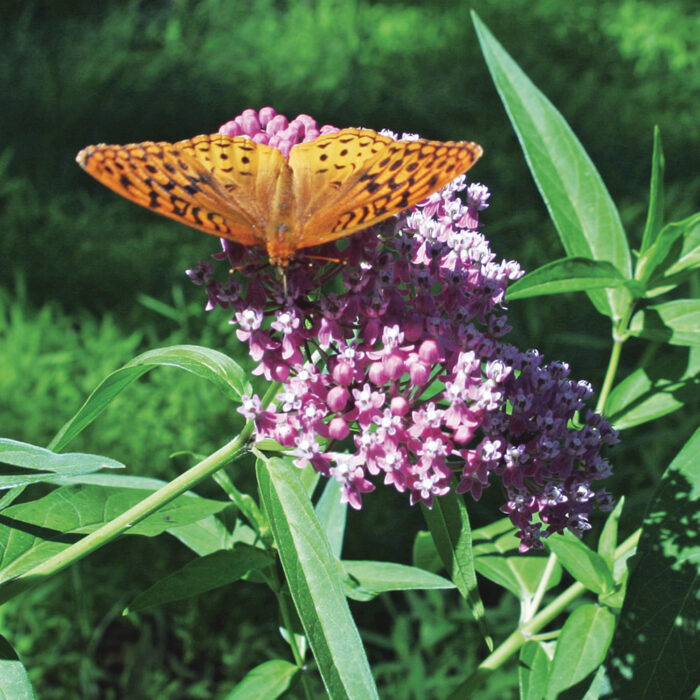
Swamp Milkweed
Asclepias incarnata
Zones: 3–9
Size: 3 to 4 feet tall and 2 to 3 feet wide
Conditions: Full sun to partial shade; wet to average soil
Native range: Eastern and central United States
Providing a larval food source for monarch butterflies would be reason enough to grow swamp milkweed, but its clusters of pink starburst flowers are also among the prettiest sights of summer. Despite being rhizomatous, it doesn’t spread nearly as quickly as common milkweed (Asclepias syriaca, Zones 3–9). Be sure to include some other ornamental plants nearby to provide visual interest after the monarch caterpillars descend upon its stems, leaves, and flowers like an all-you-can-eat buffet. If you notice an assortment of other insects congregating on this plant, you can spray them off with a water hose, but remember that any pesticides used will also harm the monarchs.
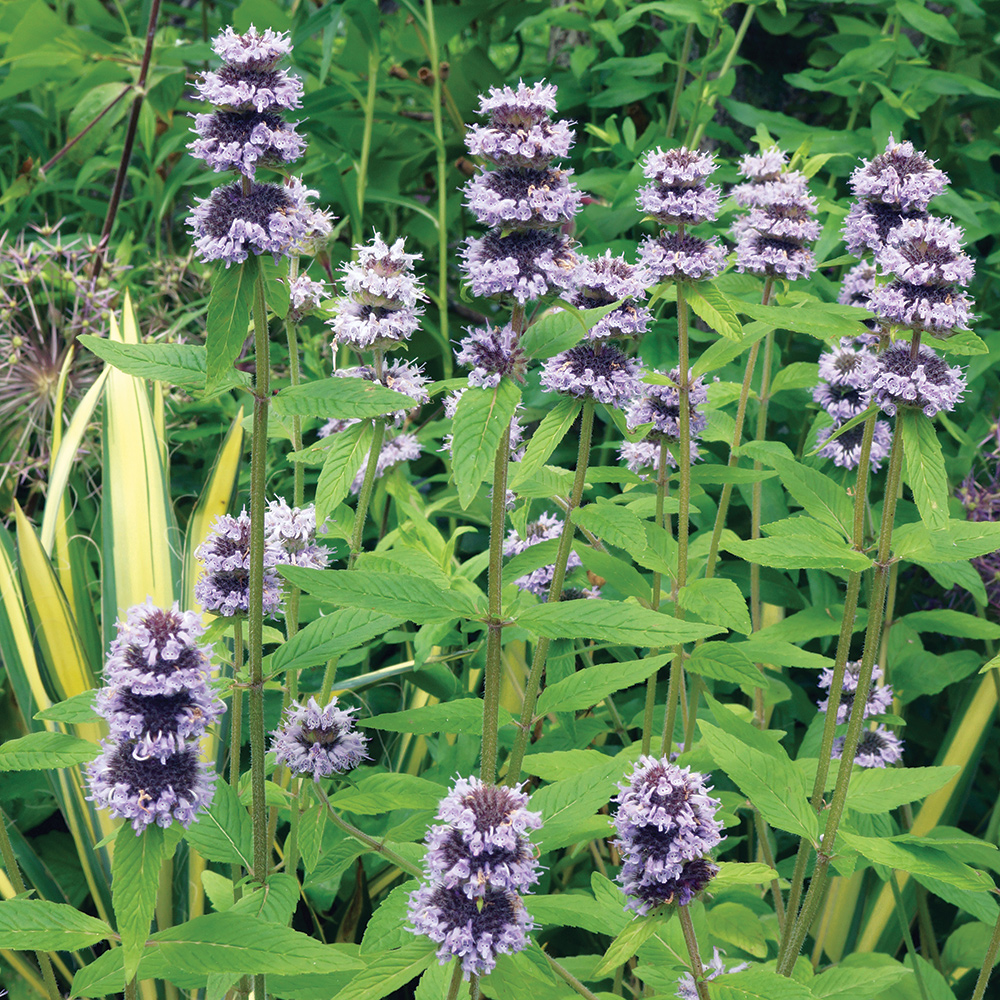
Downy Wood Mint
Blephilia ciliata
Zones: 4–8
Size: 12 to 30 inches tall and 9 to 18 inches wide
Conditions: Full sun to partial shade; average to dry, well-drained soil
Native range: Most of the eastern United States
This rare, quirky wildflower earns a spot in the heart of anyone who sees it. Resembling a cross between bee balm (Monarda spp. and cvs., Zones 4–9) and hummingbird mint (Agastache spp. and cvs., Zones 5–9), it has downy foliage and pom-pom flowers that are tiered like pagodas. Despite being a member of the mint family, it does not spread aggressively or have much of a fragrance. You’ll only catch a whiff of mint when the leaves are crushed, which is enough to dissuade any browsing deer. If its foliage is eaten by insects or looks tired after blooming, simply give it a good shear and it will regrow quickly. Parts of the plant, particularly basal foliage, will remain green throughout winter.
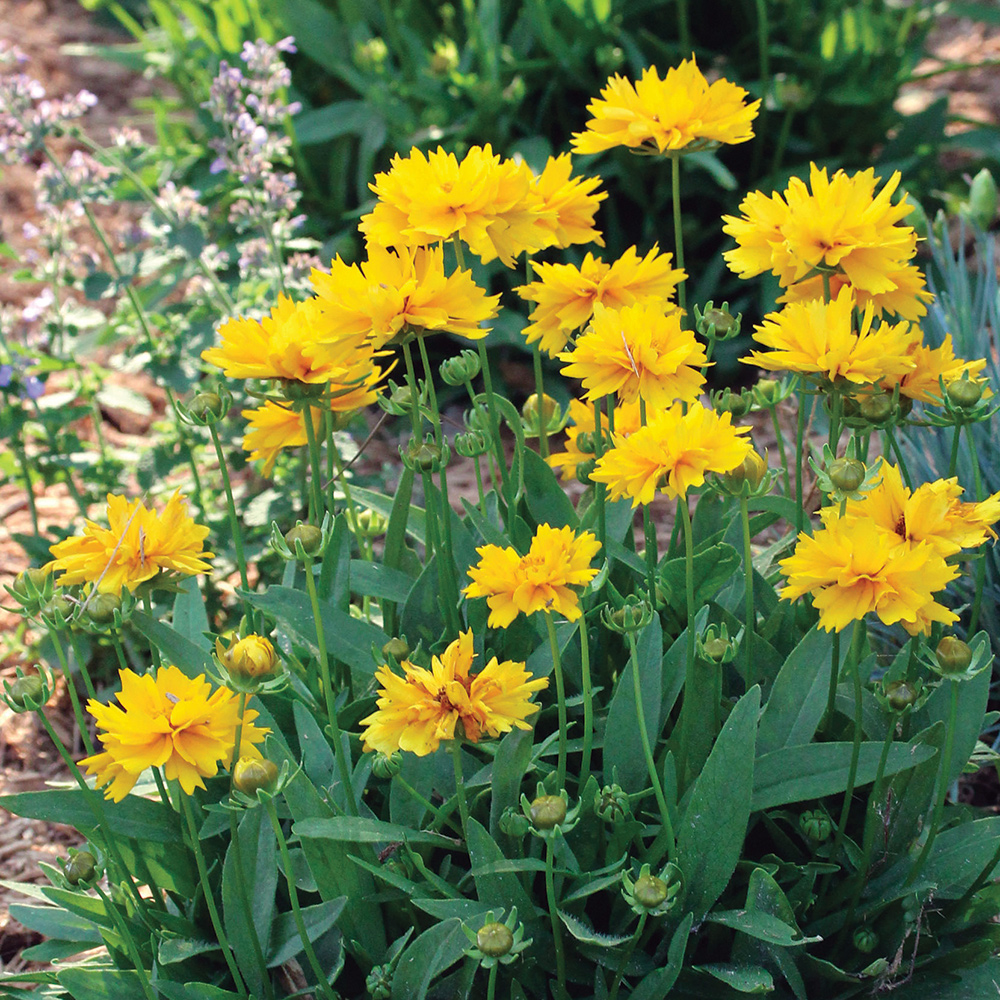
‘Presto’ Largeflower Tickseed
Coreopsis grandiflora ‘Presto’
Zones: 4–9
Size: 8 to 10 inches tall and wide
Conditions: Full sun to partial shade; moist, well-drained soil
Native range: Most of the eastern United States
Tickseeds can be a mixed bag where form and habit are concerned, so when I found ‘Presto’, it quickly became a garden staple. Its tidy, compact, meatball shape is downright cute, making it ideal for edging and creating drifts of color in front of taller plants. The 2-inch-wide, semi-double flowers are enormous for such a small perennial and attract more than their fair share of attention from pollinators as well. Shearing the plant back after its initial bloom is finished can encourage it to rebloom later in summer. For the best possible show, be sure to give it some extra moisture throughout the hottest months.
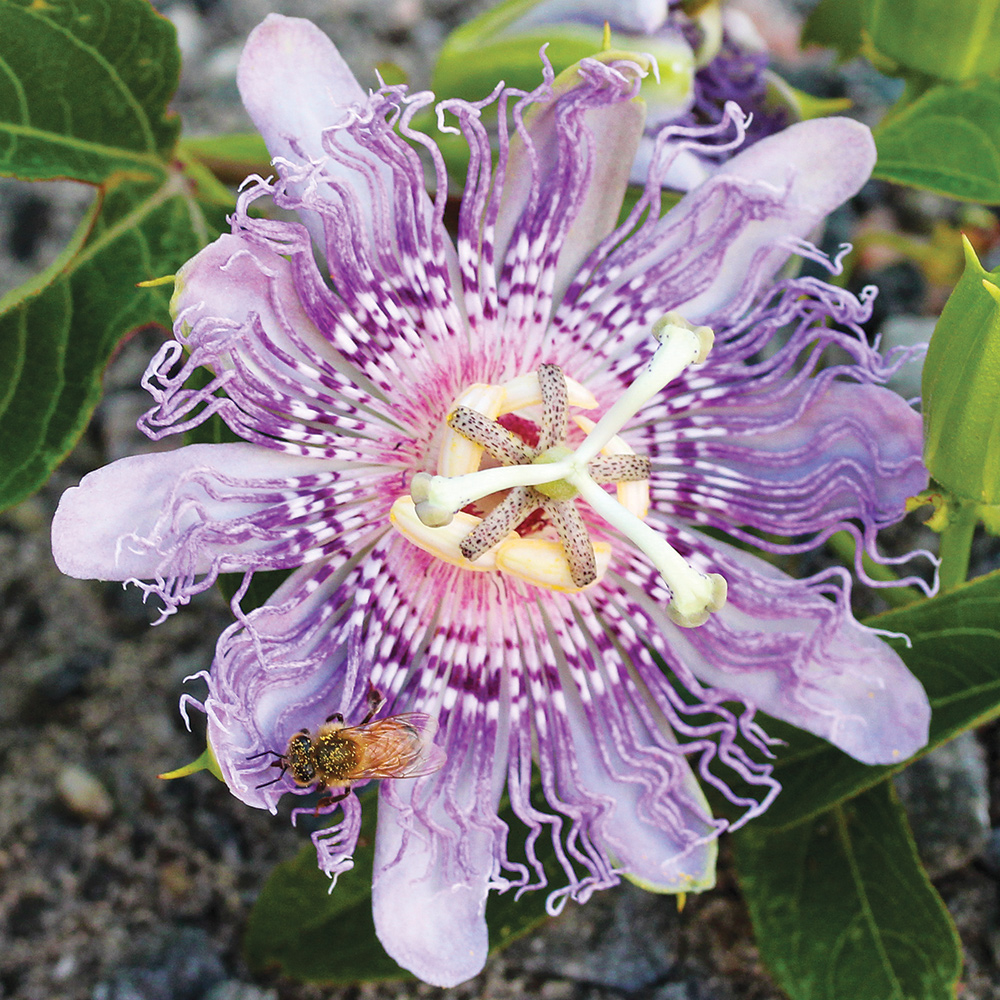
Purple Passion Flower
Passiflora incarnata
Zones: 5–9
Size: 12 to 24 feet tall and 3 to 6 feet wide
Conditions: Full sun to partial shade; moist to average, well-drained soil
Native range: Southeastern United States
Passion flowers have a reputation for being tropical and exotic. You wouldn’t expect one to be native to the United States, yet purple passion flower can be found widely along stream banks and forest edges throughout the Southeast. It’s a host plant for several fritillary butterfly species and is irresistible to many native bees. While it is worth adding this knockout to your native plant collection, I highly recommend growing it in a large pot set on an impenetrable surface. Purple passion flower forms an immense root system and will sucker many feet away from the parent plant. Once established, it is difficult to cull or remove, proving there can be too much of a beautiful plant.
Back to Natives for Summer Interest Collection
Cheyenne Wine is a writer and photographer for Rare Roots nursery in Mechanicsville, Virginia.
Fine Gardening Recommended Products

ARS Telescoping Long Reach Pruner
Fine Gardening receives a commission for items purchased through links on this site, including Amazon Associates and other affiliate advertising programs.

Lee Valley Large Gardener's Wash Basket
Fine Gardening receives a commission for items purchased through links on this site, including Amazon Associates and other affiliate advertising programs.








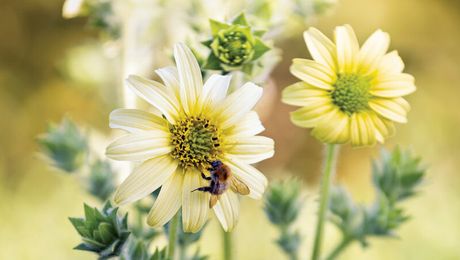










Comments
Log in or create an account to post a comment.
Sign up Log in